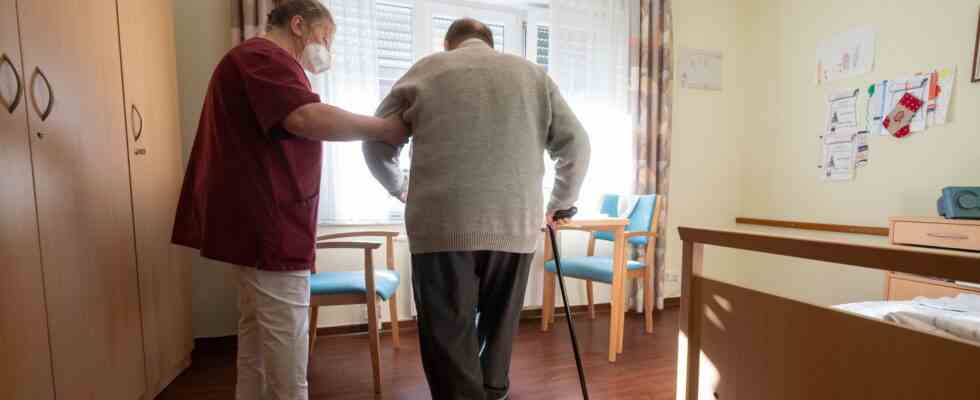Status: 07.03.2023 2:40 p.m
The number of people in need of care in Germany is increasing, the deficit in long-term care insurance is growing: What Health Minister Lauterbach wants to change and why there is criticism of the plans.
The care reform is intended to fulfill two major tasks: on the one hand, to relieve those in need of care and their relatives and, on the other hand, to cover the costs. Federal Health Minister Karl Lauterbach has now presented a first draft.
To relieve the SPD politician proposes to increase various benefits for those in need of care. Among other things, everyone who is cared for at home should receive more care allowance. Not enough, complain social organizations.
Inflation eats up the relief
CDU politician Tino Sorge, the Union’s health policy spokesman, also believes that an increase of five percent is not sufficient. With around ten percent inflation, that only covers half of the cost increases. Rising energy prices and higher wages for staff are also making themselves felt in nursing homes.
The personal contribution that those in need of care have to pay for themselves is increasing: at the beginning of the year it was an average of 2468 euros per month, as reported by the Association of Replacement Health Insurance Funds. The Minister of Health is planning higher state subsidies, but here too the social organizations believe that more is needed.
Higher contributions or tax revenue?
The second big question remains, however, who will pay for all this. Minister Lauterbach wants to increase contributions to long-term care insurance. The general rate increases by 0.35 percentage points. However, there will be a scale: childless people pay the most, with the rate decreasing with each child.
The increase in contributions would help in the short term, explains Florian Lanz, spokesman for the central association of statutory health and long-term care insurance: The gap in long-term care insurance is two to three billion euros this year, which could cover higher contributions next year and possibly the year after next. “But then it’s over again,” emphasizes Lanz. In order to better finance the long-term care insurance structurally, tax funds are needed. But Finance Minister Christian Lindner from the FDP wants to keep the money together.
The government must set the right priorities, but calls for CDU health politician Tino Sorge and asks rhetorically: “Do we want to leave old people to themselves or do we want care to be humanely possible?”
Lauterbach’s proposals “not sufficient”
The Greens definitely want to better equip long-term care insurance with tax money. You remind the FDP of the joint coalition agreement. Accordingly, the pandemic costs – as was the case with the hospitals at the time – are to be reimbursed retrospectively for care. It’s about a one-off amount of around five billion euros, says Maria Klein-Schmeink, who is responsible for health policy in the Greens parliamentary group.
At the time, the coalition also agreed on further tax subsidies for the pension contribution points of caring relatives. Relatives take care of two thirds of those in need of care at home, emphasizes Klein-Schmeink. For their pension contributions, more than three billion euros would have to come from tax revenue every year.
But there is nothing about this in Lauterbach’s draft. For Greens politician Klein-Schmeink it is clear: What the SPD minister has presented so far is not enough. The financing of long-term care insurance and the relief of those in need of care and their relatives must be improved. Before the first proposals become a finished care reform, there is still a lot of work to be done by the Federal Minister of Health and Parliament.
Nursing care reform: Criticism of Lauterbach’s first proposals
Vera Wolfskkampf, ARD Berlin, March 7th, 2023 at 2:13 p.m

